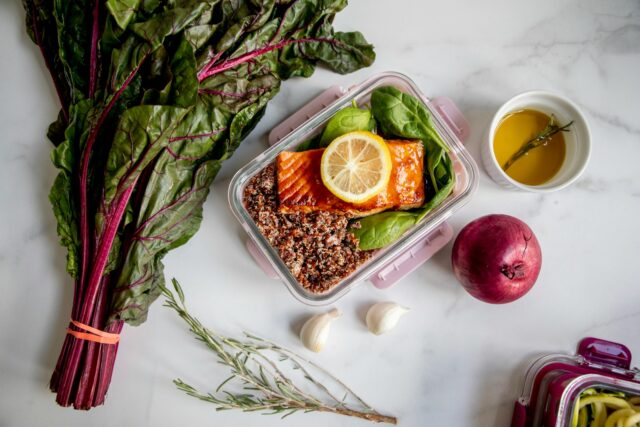Getting started with the Mediterranean diet: A Delicious Path to Better Health
Ready to eat an abundance of healthy, delicious food full of flavor while feeling full and satisfied? A diet that has been proven to be one of the healthiest and is the backbone of the Blue Zones? Yay! Then you are going to love the Mediterranean diet. Eating this way is a fantastic approach to maintaining a healthy body weight, reducing chronic disease, and just generally feeling great.
Oh, and in case you didn’t know—the Mediterranean diet was anti-inflammatory before all the cool kids were into anti-inflammatory. This way of eating is all about enjoying real, delicious food while nourishing your body in the best possible way.

Why the Mediterranean Diet is the BEST for Your Health
This eating style is literally good for everyone. It can be tailored and modified to meet specialized needs, but its foundation supports overall health. The Mediterranean diet has been linked to a lower risk of many chronic diseases, including heart disease, diabetes, and cognitive decline. It’s built around whole, unprocessed foods—think fresh vegetables, fruits, whole grains, nuts, legumes, lean proteins, and heart-healthy fats like olive oil.
Heart Health
One of the biggest reasons people turn to the Mediterranean diet is for heart health. Thanks to its emphasis on omega-3-rich fish, fiber-packed veggies, and antioxidant-loaded olive oil, it’s been shown to reduce cholesterol and improve overall cardiovascular function.
Metabolic Health
The Mediterranean diet has been proven to support a healthy metabolism and maintain stable blood sugar levels, making it an excellent choice for preventing and managing type 2 diabetes. It also plays a role in reducing inflammation, which is linked to conditions like arthritis, obesity, and even mental health disorders.
Brain Health
Let’s not forget the brain! Studies suggest that this way of eating can help slow cognitive decline, lowering the risk of diseases like Alzheimer’s. In short, adopting a Mediterranean diet isn’t just about eating well—it’s about supporting your entire body, from your heart to your mind.
The Core Principles of the Mediterranean Diet
At its heart, the Mediterranean diet is about eating whole, real foods while cutting back on processed junk. It’s simple, sustainable, and naturally delicious.
- Fruits and Vegetables – The stars of the show! Packed with essential vitamins, minerals, and fiber.
- Whole Grains – Quinoa, farro, and brown rice replace refined carbs, helping to keep blood sugar stable.
- Beans and Legumes – Chickpeas, lentils, and beans are a fantastic plant-based protein source that also support gut health.
- Healthy Fats – Extra-virgin olive oil plays a starring role, offering anti-inflammatory benefits and supporting brain function.
- Nuts and Seeds – Add crunch and satiety with healthy fats, fiber, and micronutrients like magnesium and selenium.
- Herbs and Spices – Flavor without the need for excess salt. Plus, they’re concentrated sources of plant nutrients and bioactives.
- Lean Proteins – Fish and poultry are preferred over red meat, which is enjoyed occasionally.
- Dairy (in moderation) – Think fermented options like Greek yogurt and traditional cheeses.
The Joy of Eating
Perhaps the most underrated aspect of the Mediterranean diet? The joy of eating! It’s not just about what you eat—it’s about how you eat. Meals are meant to be savored, shared with family and friends, and enjoyed without distraction. Community and connection are huge parts of the Blue Zones, and a lot of that connection happens around the table.

How to Get Started with a Mediterranean Diet
Starting a new way of eating doesn’t have to be overwhelming. The key is to make small, manageable swaps rather than trying to overhaul your entire diet overnight.
- Add more fresh veggies to your meals—think colorful salads drizzled with olive oil, roasted veggies, or a simple cucumber and tomato mix with lemon.
- Swap refined grains for whole grains like whole-wheat pasta, brown rice, or farro.
- Embrace healthy fats by using olive oil instead of butter, snacking on nuts instead of chips, and adding avocado for creaminess.
- Choose whole-food snacks like hummus with fresh veggies, a handful of almonds, or plain Greek yogurt with honey and berries.
- Experiment with herbs and spices like basil, oregano, garlic, rosemary, and cumin to add depth and flavor without excess salt.
Foods to Focus On (and What to Avoid)
A Mediterranean-inspired kitchen is stocked with fresh, wholesome ingredients that make it easy to whip up nourishing meals.
Eat in Abundance:
- Fresh Fruits and Vegetables – The more colorful, the better!
- Whole Grains – Brown rice, quinoa, farro, whole-wheat pasta, whole-grain bread.
- Legumes (Beans) – Chickpeas, lentils, black beans, and white beans.
- Healthy Fats – Extra-virgin olive oil, avocados, nuts, and seeds.
- Lean Proteins – Fish, poultry, and plant-based proteins like lentils and beans.
- Dairy (in moderation) – Greek yogurt, feta cheese, and Parmesan.
- Herbs and Spices – Garlic, basil, oregano, cinnamon, turmeric, rosemary.
Try to Cut Back On:
- Highly Processed Foods – Pre-packaged snacks, frozen meals, fast food.
- Refined Grains – White bread, white rice, processed cereals.
- Sugary Treats – Soda, candy, pastries, and other added sugar-heavy foods.
- Excessive Red Meat – Let vegetables and whole grains be the stars of your plate, with meat as a supporting player.

Let me put it all together with a A Simple 7-Day Sample Mediterranean Meal Plan
Day 1
- Breakfast: Greek yogurt with honey, walnuts, and fresh berries.
- Lunch: Quinoa salad with chickpeas, cucumber, tomatoes, feta, and a lemon-olive oil dressing.
- Dinner: Grilled salmon with roasted Mediterranean vegetables and brown rice.
- Snack: Carrot and cucumber sticks with hummus.
Day 2
- Breakfast: Overnight oats with chopped apples, almonds, and cinnamon.
- Lunch: Whole-wheat pita stuffed with grilled chicken, spinach, tomatoes, and tzatziki or hummus.
- Dinner: Lentil and vegetable stew with a slice of whole-grain bread.
- Snack: A handful of mixed nuts.
Day 3
- Breakfast: Scrambled eggs with sautéed spinach, tomatoes, and feta.
- Lunch: Mediterranean-style tuna salad with mixed greens, olives, and a lemon dressing.
- Dinner: Baked cod with a side of roasted sweet potatoes and green beans.
- Snack: Greek yogurt with a drizzle of olive oil, some berries and a pinch of sea salt.
Day 4
- Breakfast: Whole-grain toast with mashed avocado, cherry tomatoes, and a sprinkle of sesame seeds.
- Lunch: Hummus and roasted veggie wrap with a side of olives.
- Dinner: Chicken with a quinoa and herb salad.
- Snack: A few squares of dark chocolate with almonds.
Day 5
- Breakfast: Smoothie with Greek yogurt, spinach, banana, and flaxseeds.
- Lunch: Farro bowl with roasted chickpeas, arugula, and a lemon-tahini dressing.
- Dinner: Grilled shrimp with a side of tabbouleh and tzatziki.
- Snack: Fresh fruit and a handful of walnuts.
Day 6
- Breakfast: Cottage cheese with fresh berries and a drizzle of honey.
- Lunch: Caprese salad with whole-grain bread.
- Dinner: Stuffed bell peppers with ground turkey, tomatoes, and brown rice.
- Snack: Sliced cucumbers with a sprinkle of feta.
Day 7
- Breakfast: Whole-wheat toast with almond butter and banana slices.
- Lunch: Roasted vegetable and white bean soup.
- Dinner: Baked eggplant Parmesan with a side salad.
- Snack: A handful of pistachios.
Adopting the Mediterranean diet doesn’t mean giving up your favorite foods—it means embracing a new, flavorful way of eating that makes you feel amazing. So go ahead, drizzle that olive oil, enjoy your meals, and savor every bite!
Need a little extra help? Download 30 days of Mediterranean Diet Recipes here!



